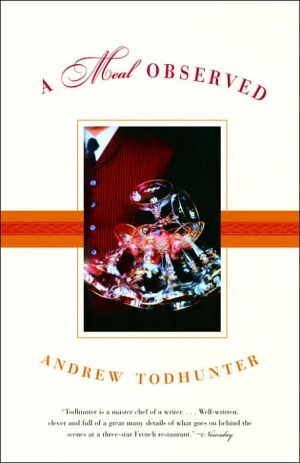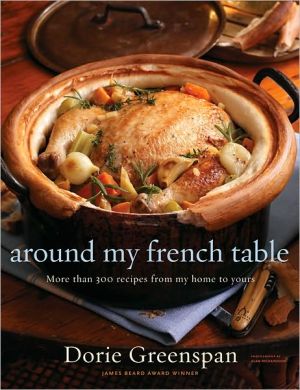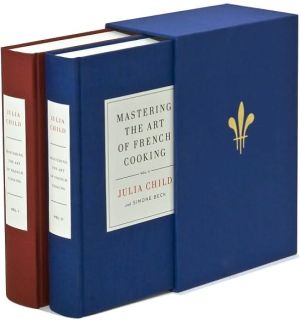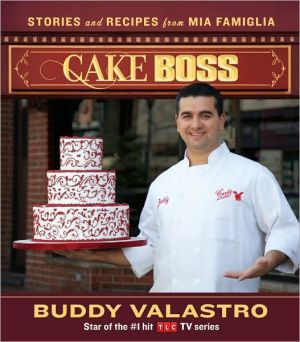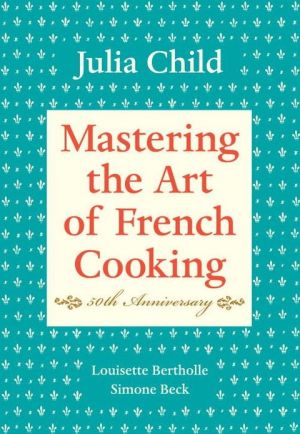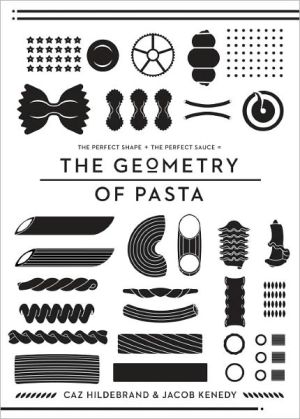Meal Observed
Awarded three stars by Michelin, Taillevent is one of the finest restaurants in the world. Todhunter spent several months working in its kitchen in preparation for the divine experience of eating a five-hour meal in the nineteenth-century dining room. From the amuse-bouche (a warm cheese puff to “amuse the mouth”) to the crowning glory of the fantasie, he perfectly captures the sensual pleasure of the meticulously served dinner. Along the way he expertly discusses everything from the state of...
Search in google:
Awarded three stars by Michelin, Taillevent is one of the finest restaurants in the world. Todhunter spent several months working in its kitchen in preparation for the divine experience of eating a five-hour meal in the nineteenth-century dining room. From the amuse-bouche (a warm cheese puff to “amuse the mouth”) to the crowning glory of the fantasie, he perfectly captures the sensual pleasure of the meticulously served dinner. Along the way he expertly discusses everything from the state of French haute cuisine and the complexity of running a renowned restaurant to the chemistry of chocolate and the history of salt. A Meal Observed is a rare treat, a paean to the French and French cuisine that is as enchanting and richly satisfying as the meal it describes. The New York Times Those of us who have been lucky enough to have dined at Taillevent (always excepting the sleek regulars) will recognize the emotions Todhunter describes, from the breathless trepidation on entering (O Lord, I am not worthy) to the pang of guilt (a family of four could live on that for a month) that comes with the bill. But in fact, the genuine welcome, the general consideration without condescension of the staff and the almost telepathic service that one should expect from a restaurant of this class are more than reassuring. — Sarah Ferrell
L’Arrivée\ I park at the corner of the rue Balzac and the Avenue de Friedland, and the instant I cut the engine I become aware that I am nervous. Performance anxiety, butterflies, a mild version of the racking nerves I used to suffer, as a freshman and sophomore in high school, before a wrestling match. The fear that I would be humiliated, outmanned, before the eyes of my coach, my teammates, and a girl whose name I had shoveled in the snow, on the frozen Hudson River, in letters visible to passing aircraft. In the car, I glance quickly over at my wife, who smiles gamely but a little uncomfortably, and we sit for a long moment in silence, not moving, in a kind of feigned, mutual optimism, as if bracing for embarrassing news. I try not to think it through, because I know that analysis will only make it worse, and that I am here, we are here, to enjoy ourselves. I glance at the car clock, then my watch, and their un- expected synchronicity provides a flush of paramili- tary satisfaction. I slip my cell phone out of the inside breast pocket of my jacket and check the time in the upper right-hand corner of its miniature screen. All three! A good omen, and proof, despite the state of my front bumper, creased into an awkward V against a black Mercedes’ tow bar in Brugge, that my equip- ment and I are essentially on the ball. According to these three chronometers, it is 8:15 in the evening on Tuesday, July 13, 1999, the eve of Bastille Day. We are early.\ I glance again at my wife. Erin is thirty-two and beautiful—stunning, really—and for this I’m grateful. Her beauty is the one sure thing we have on this world we are about to enter, the thing no waiter or sommelier or maître d’hôtel at Taillevent—a Michelin three-star restaurant considered by many critics to be the finest in France and thus the world—can wrest from us with a patronizing glance. In hours of need, one can remind oneself that beauty, more even than youth, its reckless twin, has ever been a fortune before which wealth, sophistication, and intellect will bow.\ We are also prepared to spend between twenty-five hundred and three thousand francs—four to five hundred dollars out of our own pockets—on a meal for two. This is something we have never done. Not only because we are often nearly penniless, given the vicissitudes of my work, but because we are not, truly, gourmands. By and large, that is not where our money goes. For reasons fiscal, temperamental, and psychological, we eat out rarely, and when we do we often bring it home. Furthermore, though we have bought the odd issue of Gourmet or Saveur, we have not yet subscribed to such magazines. We are not, in short, “foodies.” I object to the very word “foodie,” not only for its inherent ugliness as a sound, but for its cliquishness. “I’m a huge foodie,” a woman told me recently at a dinner party, with that mixture of false shame and childlike enthusiasm that accompanies nearly any public revelation of sensual preference, and it struck me as surprisingly intimate, even indecent, as if this near-stranger had slipped off her Roman sandals, stretched her calves across my lap, and asked if I would like to eat her feet. I later admitted that if this particular foodie had been more attractive her confession might not have troubled me. In that case, it might well have conjured the agreeable image of her nude and reclining in a bathtub of mashed banana.\ Our status as nonfoodies notwithstanding, my wife and I both like to cook, and even more than that we like to sit and eat at a comfortable table for long hours. And that is one reason we are here, at this moment, at the corner of Balzac and Friedland. For there are few moments more existentially harmonious than those that make up the latter half of a good meal in a hospitable restaurant, in the company of one or two people—rarely more—with whom one feels almost entirely safe, and by whom one feels at least partially understood. I had such a meal at an underrated one-star restaurant named Julien, in Strasbourg, on the quai des Bateliers, with my wife and her mother some six years ago. By some turn of fate for which I shall always be grateful, I have been blessed with a mother-in-law who is excellent company. I would never have imagined, as a bachelor, that I might take some of the best trips in my life with my wife and her mother, but there it is. The fact that she is a good deal younger than we are in spirit certainly helps, and there is always the vague sense that we are traveling with a mysteriously greying niece. In any case, the near-perfection of such a meal has less to do with the food, with the procession of well-wrought dishes, than with that gathering condition of bien-être induced by wine and victuals and companionship in a warm, preferably unfamiliar setting, all the while under the care of sure-handed and anonymous strangers.\ This state generally peaks late in the evening, and usually at the pause when the dinner plates have been cleared away. There is first of all the caloric high, the rush of blood sugar, the false sensation that all is well in the world because one has eaten well. The conversation usually peaks at this time, and everyone at the table is giddy. At that moment, a server often brushes the tablecloth. The conversation at a pause, you may lean back away from the table to admire this orderly gesture. You may be struck by the suspicion that Western civilization, beleaguered by greed, cynicism, and bad taste, might simply be preserved through the observance of this solitary act. When the server withdraws, you luxuriate in the sight of the freshly cleaned white tablecloth, minutely spotted here and there, perhaps, but smooth and free of crumbs, and as you lean back in, resting your forearms on the table, you sweep the white expanse with an open palm. The candlelight soaks into the cloth, and glimmers on the surviving silverware, and the white noise of the other conversations in the restaurant is decorous but lively. You feel as if you are swimming unseen in the well of these voices, through these foreign and contented lives. Besotted with this confluence of nurture and sedation, free of fear and responsibility, you stare blankly at the cloth, or up into the flame of the candle, or close your eyes and sink into the taste and heat of the wine, into the womblike center of these concentric human circles, one within another within another—and for a moment you will know that you are here, truly here, at this table in this restaurant in this benign and generous world.\ If one has been careful with the wine, but not too careful, the afterglow of this rapture de la table can last well into the drive home, and even, if you hurry, into bed.\ The anonymity of the waiter is in itself impor- tant, and serves a number of functions. In America, of course, to global ridicule, we have made the widespread mistake of training our servers to introduce themselves to their customers by name. This has not yet trickled down into the kind of rural American diner frequented by deer hunters, where the waitress might reflexively call you “hon” but will have far too much common sense than to burden you with her identity. It is largely for this reason that I like such diners, where, when you’ve dulled your senses to the fence of neon-orange vests along the counter, and the fraternal “I’m gonna kill me an animal” intention that hangs in the air like the scent of sawdust and sour beer, you can still get a fine breakfast of eggs, hash browns, toast, and coffee for under five bucks.\ I should confess that, though I am willing to catch or spear fish, I haven’t eaten red meat in some years, and feel viscerally opposed to terrestrial sport-hunting for reasons I can’t quite articulate. My paternal grandfather was a fanatical hunter and fly fisherman, and my father likes to fish from time to time, so I have no doubt that I would enjoy everything about big-game hunting except gunning the animals down. In fact, I could well imagine spending hours or days in pursuit of a large animal with an empty rifle, if only to draw a perfect bead on it—De Niro at the end of The Deer Hunter—and let the animal pass. My mother, for her part, spontaneously became an ovolactovegetarian at age six. I believe it happened at breakfast, when she declared she would not eat the bacon on her plate, or any other meat for that matter, as long as she lived. Nearly seventy years later, she has yet to wriggle out of this vow. This was in 1932, when Americans who chose not to eat meat were considered not merely odd but dangerously out of their minds. If I inherited a portion of my grandfather’s love of sport, and a portion of my mother’s sensibility regarding animals, spear fishing may represent some kind of lame behavioral compromise. When I was a young boy in New England, the day I came ashore with my first speared rockfish and cleaned them on a stump at a friend’s house, the smell of the fresh blood on my hands triggered an unexpected and primordial response. I rubbed the blood up and down my forearms, painting them, and nearly swooned from its sight and its sweet sticky smell. It was powerfully arousing in some uncultured way, and I might easily have smeared the rest of my eight-year-old body with the blood had I not felt some shame in my excitement. Later, I experienced a measure of revulsion when it came time to eat the thick white meat of the fried fish that I had speared, although I forced myself to eat it, and that feeling rarely recurred. Now I spear-fish much more rarely, and when I do I feel a bit sorrier for the fish. It has also been quite some time since I was excited by the smell and sight of blood, and even longer since I felt a pang of revulsion at eating the flesh of an animal so recently living.\ My father, who taught me to fish, taught me to kill them quickly, to reduce unnecessary suffering, and I had assumed this was a universal practice. One summer dusk, however, my father and I came across a man casting for bluefish; a huge blue lay on the sand, gulping and flapping. “Aren’t you going to kill it?” I asked the man. “No need,” he answered over his shoulder, “it’ll die on its own.” I watched the fish struggle and wondered if there was some way I could kill it, as was proper, without causing offense. I saw no way around the problem, and finally my father and I said good night to the fisherman and moved along.\ In any case, the anonymity of the waiter helps first to define what is an ancient, respectable, and specific relationship. The waiter, when he is your waiter, is not Jonathan. He is not a married father of two with a bad knee and a gambling habit. He is in possession of greater or lesser amounts of grace, charm, skill, knowledge, warmth, and decorum, but he is your waiter, and should remain nameless. Of course, the American waiter who takes his or her job seriously is a rare thing. My impeccably mannered sister-in-law recently asked a Californian waiter in an Italian restaurant, confidentially, if it was indeed true that chefs dreaded orders for zabaglione, the labor-intensive concoction of egg yolks, sugar, and Marsala wine. A skilled waiter might have produced any number of informative, amusing, and tip-leavening responses to such an inquiry, but this fellow replied flatly, “Now, that’s a stupid question.” I wasn’t there, but I’m sure they knew his name.\ More objectionable still than “Hi, my name is Jonathan . . .” is the phrase to follow. After the opening introduction, the waiter will soon return to the table with an artificial grin and the query “Are you guys ready to order?” My mother, who is over seventy, a mother of four, and a Ph.D., is categorically not “you guys,” but waiters invariably seem to think that she would like to be. Not that she complains—she’s a good sport, and is usually too worried that the kitchen will slip a rack of ribs into her vegetarian pasta to trouble with forms of address—but it irks me, her youngest and long-disrespectful son. The fact that my wife and I are also “you guys” is a minor matter in comparison. The gender attribution is less of an issue here than its forced casualness. The word “guy,” after all, is slang. Its nearest equivalent in French, and surely its semantic progenitor, is gar. “Hi, guys,” becomes Salut les gars. One need only imagine a self-respecting French waiter addressing an elderly couple as les gars to know how far from that standard we Americans have devolved. Call me retro, but call my mother ma’am.\ If I thought it through, at the corner of Balzac and Friedland, I would conclude that I am nervous because I am foreign, because I am not accustomed to eating this way, and because I suspect that there are things one absolutely does not say or do in the dining room of this restaurant that we, or I, will say or do. I dread the near-certainty that common courtesy and good manners will not suffice. Something will slip, some gaffe, made all the worse because it will be committed in ignorance, and with the best of intentions. We will break a cardinal law of French etiquette, something more heinous, perhaps, than licking our fingers and wiping our chins with the tablecloth, and we will do it with gravity and politesse. We both know that it is acceptable and expected in France to “mop”—to clean the remaining sauce from one’s plate with a slice of baguette, an act of barbar- ism at self-respecting tables of the United States. For reasons that remain unclear—my Scotch-Canadian grandmother, perhaps—I was raised to eat in the continental fashion, wherein it is permissible to spear a mor- sel with the fork in the left hand, tines down, and raise the bite directly to the mouth—another faux pas, generally speaking, en Amérique. And we know that one uses the silverware from the outside in as the meal progresses. But otherwise we’re on our own. The problem with etiquette is that it is a language, like Urdu; it is not intuitive, but learned.\ On the one hand, I think, if I forget myself and smell the cork, as any American rube is apt to do, so be it. Such a thing is never done by people who actually know wines, because the odor of the cork reveals precisely nothing. Or, rather, it reveals one’s ignorance, and one’s desire to be admired as worldly. The fact that one is surrounded by men who smell their corks at overpriced business lunches in mediocre restaurants does not lend credence to the act. In any case, there should be no reason, really, that one should be expected to do anything more than behave according to the laws of natural courtesy, especially if one is having a meal for the price of a used car.\ Whereas Erin’s anxiety may be natural, mine is more puzzling on the face of it, for I have been apprenticing at Taillevent off and on over the last three months. With the permission of owner Jean-Claude Vrinat and his two chefs, I have become a kind of reporter-apprentice and ambulatory traffic cone in the kitchens. When I am not harrying the chefs with questions, snacking on petits-fours in the pastry kitchen, or wolfing down small offerings in the cuisine, I am doing some small task half as well, and twice as slowly, as the greenest young cook in the house. I remove shards of shell from trays of crabmeat, press rings of dough into baking tins smaller than shot glasses, pass a torch over Crèmes brûlées à la Bergamote, cut rose petals from sheets of white chocolate.\ Having worked, years before, as a prep cook, waiter, and bartender in a number of American restaurants, I had long harbored an interest in seeing a French kitchen at work. This interest was more personal than pro- fessional: my restaurant days were probably over, but I wanted to know more about what professional cooks thought and felt about food. I was somewhat less interested in technique than in attitude, approach. I wondered, for example, how a professional chef might prepare a meal for a beloved, and how his or her professional experience might aid or hinder it. Does increased technical knowledge expand one’s awareness and appreciation of fundamental human experience, or does it create a gap, an alienating objectivity? It is an age-old question, and the answer goes both ways. As a writer by trade, with much to learn, I find it difficult to suppress the trained impulse to craft language, however casual the written form. Because of this, I have found that experience as a writer both helps and interferes with my ability to be simple and direct.\ As a boy of eighteen in Washington, D.C., I often drove down to the Vietnam Veterans Memorial late at night. I would read the notes to dead soldiers, short or long letters from wives and sisters and mothers and grown sons, as often as not written at something like the sixth-grade level. The simplest and quietest, the most everyday, were always the truest and most heartbreaking. I knew even then, steeped in the arrogance of youth, that no amount of craft could improve them.\ So I was and remain unsure about the value of so-called expertise when it comes to things that matter more than art or engineering. As for food, I was only just beginning to understand the significance of meals in a family and among friends. Our first child, a daughter, had been born not three years before this period in France, and in the first days home from the hospital my wife, who had been through an arduous labor, was pale and weak from loss of blood and spent much of her time in bed. The first morning home I had no appetite at all, too wired and apprehensive and ecstatic as I was, but my wife was ravenous. I hurried downstairs in the early morning and made a six-egg omelet splitting with avocado and melted jack cheese and tomatoes, with sheaves of toast and half a grapefruit besides. I poured her a wineglass full of whole milk—something she never ordinarily drinks. When I carried it up to her, I sat on the edge of a chair near the bed and watched her eat while the baby slept curled up against her hip. Without abandoning her manners, she ate like an animal that has been near death and is recovering. I could not look away; it was as if I could see the lost blood returning to her veins, spun from the cells of the meal, the forces of regeneration aglow in the room. In that period of half an hour, from the moment I cracked the first egg into the bowl until she had eaten the very last of it, to the crumb, and sagged back, sated, into the pillows, I understood food and what it means to cook in a way I never have before or since.\ Food is love, I used to joke—embittered by my mother’s ludicrously small servings at the dinner table—and I’m hungry. Why my mother served so little pasta, for example, rather than the indecorous mounds we might consume, remains a mystery. The mere presence of food in the fridge always seemed to distress her, and when one of us returned from a run to the market with two bags of groceries, she would invariably remark, “Goodness, we’ll have enough food for a month!”\ In defiance of her inclinations, my mother is still able to produce a superb lasagna, the best pasta puttanesca I’ve ever had, and an excellent roast chicken, among other things. Repressed may it be, an aptitude for cooking, it is clear, lurks within her. It has been telling to note how this played out in my two elder sisters. One, dismayed by my mother’s approach to homemaking, embraced the hearth and stove with a vengeance. The other has maintained the belief, staunchly held and widely publicized, that she cannot cook an egg, despite countless other creative talents.\ When I was a boy, my father rarely cooked. But when he and I drove north to the Catskills to visit his mother, he would cook dinner for the three of us. The meal was invariably a steak and a baked potato and green beans or carrots steamed and sautéed in butter. It was always tasty and serviceable, and in every way a mysterious reflection of the man. My father was eternally on edge in that grand house—his mother was difficult, to put it mildly. But I always had the sense, as we ate his meals to the sound of silverware in the dim light at that long table, that I was learning something about my father that could not otherwise be learned or put to words. More recently, now retired, my father has developed a real enthusiasm for cooking. He writes down recipes at dinner parties. He does most of the cooking for the two of them, and when my parents last visited he prepared an enormous and delicious eggplant casserole with Gruyère and tomatoes and parsley and sautéed onions, and it was a joy to see how much fun he had putting it all together.\ From the Hardcover edition.
\ The New York TimesThose of us who have been lucky enough to have dined at Taillevent (always excepting the sleek regulars) will recognize the emotions Todhunter describes, from the breathless trepidation on entering (O Lord, I am not worthy) to the pang of guilt (a family of four could live on that for a month) that comes with the bill. But in fact, the genuine welcome, the general consideration without condescension of the staff and the almost telepathic service that one should expect from a restaurant of this class are more than reassuring. — Sarah Ferrell\ \ \ \ \ The New YorkerIn 1999, Todhunter and his wife had dinner at Taillevent, a three-star Paris restaurant;the evening was evidently so extraordinary that its description required an entire book. As the liturgy of the meal itself unfolds—from gougère to “Moelleux au Chocolat et au Thym”—Todhunter intersperses sketches of the establishment’s various culinary magicians, disquisitions on French gastronomic lore, and dollops of memoir about the meals he ate growing up in America. The shtick of uncouth Americans cowed by French sophistication is a familiar one, but Todhunter plays it superlatively—the embarrassment suffered when specifying a price range to the sommelier, the maître d’“with a stride so liquid as to be indistinguishable from levitation”—and is appealingly unsnobbish. And he is eloquent about humbler repasts, sharing a sandwich with his dog, or cooking his wife a six-egg omelette after the difficult birth of their first child: “She ate like an animal that has been near death and is recovering.”\ \ \ Publishers WeeklyTodhunter takes a magazine-length idea and turns it into an amusing little book, combining history and experience with a sheaf of helpful culinary notes. The author, who lives in California and has written two previous books on extreme sports, has chosen as his subject a dinner with his wife at Paris's Taillevent, "a Michelin three-star restaurant considered by many critics to be the finest in France and thus the world." The book's chapters correspond to the stages of the meal, such as "L'Aperitif," "L'Entree," "Le Plat" and "Le Fromage." As dinner progresses, Todhunter reveals his connection to Taillevent: he's been a sort of "reporter-apprentice" on and off for a few months. Thus, he frequently takes breaks from describing the meal to bring in details from fairly long interviews he's conducted with various Taillevent chefs and the things he's learned in the kitchen. Some of this is fascinating, such as the process by which one chef uses a motorized airbrush to "paint" a dessert with chocolate mist. Todhunter further plumps up the narrative with digressions on his personal culinary history. Although he claims he and his wife are "nonfoodies," his commentaries reveal otherwise: they have a cheese diary, where his wife keeps notes on Tomme d'Abondance and Sancerre; and Todhunter undoubtedly knows more than the average Joe about what goes with lobster or how to make a delicious sandwich. Whatever Todhunter's culinary status, however, he is never pretentious and goes to great lengths to explain the origins of such simple foods as salt and olive oil. By meal's end, when Todhunter staggers home feeling "less stuffed than meticulously packed," readers might well feel the same. (Feb. 18) Copyright 2003 Reed Business Information.\ \ \ \ \ Library JournalIn this slim volume (about the size of a Zagat guide), freelance journalist Todhunter recounts a luxurious meal that he and his wife enjoyed at the world-famous Taillevent restaurant in Paris. It is no ordinary dinner, with numerous courses served over four hours, but what makes the story so compelling is Todhunter's behind-the-scenes insight into its creation. He spent three months as a reporter-apprentice, investigating every detail that makes Taillevent so special, from the precisely timed appearance of the staff to the evolution of its signature dishes over the last 50 years. Throughout, he divulges information about the inner workings of the kitchen and digresses upon details such as the chemistry involved in pastry or the history and development of salt and pepper as we know it. This splendid account from a nonfoodie (his previous books are on extreme sports) is recommended for most public libraries and any collections with an emphasis on French culture and cooking. (Illustrations not seen.)-Julie James, Forsyth Cty. P.L., NC Copyright 2004 Reed Business Information.\ \ \ \ \ Kirkus ReviewsA highly companionable evening spent with Todhunter (Dangerous Games, 2000, etc.) and his wife at the great Parisian eatery Taillevent, where the conversational flow complements the dinner to a T. As a magazine writer, the author has always taken a hands-on approach, whether the subject was sea-kayaking jumbo waves or swimming under the ice of a winter pond. The same applies here: he spent three months as an apprentice at one of the world's great restaurants-on familiar ground, in a way, since the kitchen's breakneck pace, open fire, and ultrasharp knives may well qualify this work as an extreme sport. But Todhunter doesn't simply recount his days as an apprentice; he frames the story as a meal, with each course setting off digressions to here and there: the history of watercress in French cooking, a guide to cheese shops in Paris, the quality of a sorbet made from frozen champagne. Todhunter is wonderfully enthusiastic about their meal-"Closely read, a good menu is an onslaught," he writes. "Each word or phrase . . . thumps and shudders like a depth charge in the animal mind"-but guilty, too: "There is something more than a little vulgar about all this, of course, something shameful. . . . Yet here I sit, engorged and exultant." Forgivable, for this will likely be a one-time event for the one-step-ahead-of-the-taxman author. And we thank him too: for the use of French that fits snugly into the narrative like the flooring of apple slices in a tarte tatin; for the fascinating information on how to boil a pigeon head and how chocolate resembles wine; for keeping a sense of humor amid all the perfection. When the maitre d' takes a big slug from their expensive demi of wine (a precaution soclients don't get a mouthful of bad wine), Todhunter gulps: "Some taste, I think, suppressing my alarm. The guy just tossed back fifty francs." Has the same flair and expert pacing as the meal. (11 illustrations) Agency: Candice Fuhrman Literary Agency\ \
